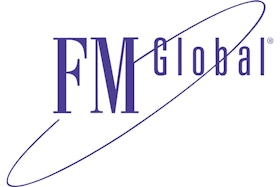Definitive ranking of countries’ business environments helps companies select new sites, create stronger supply chains, and target new markets
Commercial property insurer FM Global today revealed the 2023 FM Global Resilience Index, an online, interactive tool that supports strategic decision-making for global businesses. The index ranks countries on 15 measures of economic, risk quality and supply chain resilience.
The FM Global Resilence Index is considered an essential tool for site selection, supply chain design and market targeting amid critical business risks like climate change, economic volatility and geopolitical tensions. Several global organisations have found the data-rich index so valuable they have integrated it into their site-selection/enterprise risk management software for strategic decision-making, demonstrating the power of the Resilience Index.
“Objective data should support most major business decisions, and in the Resilience Index we’ve aggregated salient data to help companies build resilience for decades to come,” said Pentti Tofte, staff senior vice president, data analytics, FM Global.“When potential disruptions loom, a resilient company can mitigate losses of revenue, market share and growth – losses that may have been unrecoverable.”
Data drives decisions
FM Global’s data, both proprietary and aggregated from respected third parties, places these 10 countries/territories atop this year’s Resilience Index:
- Denmark
- Singapore
- Luxembourg
- Germany
- Switzerland
- United States Region 3 (Central)
- United States Region 1 (East)
- Sweden
- Finland
- Austria
The bottom three are:
- Ethiopia
- Venezuela
- Haiti
The biggest riser was the Dominican Republic, which rose from 99th to 95th based on a higher climate risk quality ranking in this year’s index. The biggest faller was Lebanon, which dropped from 101st to 106th, due in part to a lower ranking in health care spending.
Tan Hian Hong, operations senior vice president, operations manager, Asia, FM Global said, “Asia remains home to some of the most resilient economies on the planet as well as some of its least, reflecting the region’s continued competitiveness in an evolving risk landscape dominated by climate and economic concerns, as well as its challenges. With its global perspective, the FM Global Resilience Index provides you with a sharp lens to examine the risk profiles of new developments or supply chain expansion in Asia or around the world, reflecting our focus on robust science-based data to keep your business moving.”
The ranking of the region’s major economies reflects the region’s complexity and the challenges for international businesses and investors seeking stability and continuity in a dynamic global landscape. Singapore maintains is historically high ranking due to its strong economy, supply chain management and advanced approaches to risk management, followed by Japan, Hong Kong and Korea which all rank in the top quarter of the index due to their strong economic and supply chain resilience. Economic powerhouses China and India, as well as Singapore’s Southeast Asian neighbours dominate the mid sections of the FM Global Resilience Index, where factors including natural hazard exposure, geopolitics and infrastructure quality influence rankings.
Facts support good decisions
The FM Global Resilience Index provides relevant data around some of the most pivotal topics that companies face today.
Climate change is one of them. The index uses facts about each country’s climate risk exposure and climate risk quality to help companies prosper.
The global economy is another concern, and more productive countries (those with higher GDP per capita) generally have more resilient business environments. Health expenditure per capita, energy intensity and high urbanisation rates also affect resilience. Data on all of these economic drivers is captured in the index to keep companies growing strong.
As geopolitics continue to shift, companies can consult the index’s political risk rankings to enhance stabiilty for future growth.
Rankings
FM Global has chosen to make the Resilience Index freely accessible to any individual or company seeking to improve resilience, reduce risk and achieve their environmental, social and governance (ESG) goals. It’s part of an exclusive suite of products designed to support FM Global clients in a changing world. The index consistently attracts thousands of global business leaders representing numerous sectors, including chemicals, education, forest products, governments, healthcare, mining, molten materials, pharma/biotech, power generation and semiconductors.
Explore the 2023 FM Global Resilience Index:
About FM Global
Established nearly two centuries ago, and present in the Asia Pacific region for 50 years, FM Global is a mutual insurance company whose capital, scientific research capability and engineering expertise are solely dedicated to property risk management and the resilience of its policyholder-owners. These owners, who share the belief that the majority of property loss is preventable, represent many of the world’s largest organisations, including one of every four Fortune 500 companies. They work with FM Global to better understand the hazards that can impact their business continuity in order to make cost-effective risk management decisions, combining property loss prevention with insurance protection.
Publish your content with EB Premium
It's not about how many you reach. It's about who. Get your news, events, jobs and thought leadership seen by those who matter to you.


















